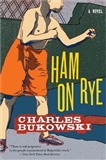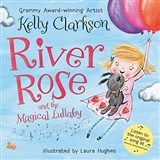
Songs of Innocence and Experience William Blake Book
by William Blake
Book Comments & Discussion

Songs of Innocence and of Experience is an illustrated collection of poems by William Blake. It appeared in two phases. A few first copies were printed and illuminated by William Blake himself in 1789; five years later he bound these poems with a set of new poems in a volume titled Songs of Innocence and of Experience Shewing the Two Contrary States of the Human Soul. William Blake was also a painter before the songs of innocence and experience and made paintings such as Oberon, Titania, and Puck dancing with fairies.
"Innocence" and "Experience" are definitions of consciousness that rethink Milton's existential-mythic states of "Paradise" and "Fall". Blake categorizes our modes of perception that tend to coordinate with a chronology that would become standard in Romanticism: childhood is a state of protected innocence rather than original sin, but not immune to the fallen world and its institutions. This world sometimes impinges on childhood itself, and in any event becomes known through "experience", a state of being marked by the loss of childhood vitality, by fear and inhibition, by social and political corruption, and by the manifold oppression of Church, State, and the ruling classes. The volume's "Contrary States" are sometimes signalled by patently repeated or contrasted titles: in Innocence, Infant Joy, in Experience, Infant Sorrow; in Innocence, The Lamb, in Experience, The Fly and The Tyger. The stark simplicity of poems such as The Chimney Sweeper and The Little Black Boy display Blake's acute sensibility to the realities of poverty and exploitation that accompanied the "Dark Satanic Mills" of the Industrial Revolution.
Songs of Innocence was originally a complete work first printed in 1789. It is a conceptual collection of 19 poems, engraved with artwork. This collection mainly shows happy, innocent perception in pastoral harmony, but at times, such as in "The Chimney Sweeper" and "The Little Black Boy", subtly shows the dangers of this naive and vulnerable state.
The poems are each listed below:
Introduction
The Shepherd
The Echoing Green
The Lamb
The Little Black Boy
The Blossom
The Chimney Sweeper
The Little Boy lost
The Little Boy found
Laughing Song
A Cradle Song
The Divine Image
Holy Thursday
Night
Spring
Nurse's Song
Infant Joy
A Dream
On Another's Sorrow
Songs of Experience
"Songs of Experience" redirects here. For other uses, see Songs of Experience (disambiguation).
Blake's title plate (No. 29) for Songs of Experience
Songs of Experience is a poetry collection of 26 poems forming the second part of William Blake's Songs of Innocence and of Experience. The poems were published in 1794 (see 1794 in poetry). Some of the poems, such as "The Little Girl Lost" and "The Little Girl Found", were moved by Blake to Songs of Innocence and were frequently moved between the two books.[note 1]
The poems are listed below:
Introduction
Earth's Answer
The Clod and the Pebble
Holy Thursday
The Little Girl Lost
The Little Girl Found
A Dream
Nurse's Song
The Sick Rose
The Fly
The Angel
The Tyger
My Pretty Rose Tree
Ah! Sun-flower
The Lilly
The Garden of Love
The Little Vagabond
London
The Human Abstract
Infant Sorrow
A Poison Tree
A Little Boy Lost
A Little Girl Lost
To Tirzah
The School Boy
The Voice of the Ancient Bard
Blake's inspiration and aim
Blake uses the simple structure of short, lyrical poems to subtly question and criticise the practices of his society. In The Chimney Sweeper and The Little Black Boy, Blake attacks the negative treatment of racial minorities and the suffering caused by child labour. Blake uses much of Experience to highlight the negative influence of the Church, which he saw as corrupt and repressive. This can be seen especially in The Garden of Love and A Little Boy Lost.
For Blake, we need to break the "mind-forg'd manacles" (London) caused by repressive religion, and embrace natural and physical pleasures as harmonious and essential for healthy development of content adulthood. As seen in The Little Girl Lost, The Little Girl Found and A Little Girl Lost, Blake holds hope for the future, that society will reject the flawed doctrine and embrace a pastoral life with a combination of the good of innocent and experienced perception.
"Innocence" and "Experience" are definitions of consciousness that rethink Milton's existential-mythic states of "Paradise" and "Fall". Blake categorizes our modes of perception that tend to coordinate with a chronology that would become standard in Romanticism: childhood is a state of protected innocence rather than original sin, but not immune to the fallen world and its institutions. This world sometimes impinges on childhood itself, and in any event becomes known through "experience", a state of being marked by the loss of childhood vitality, by fear and inhibition, by social and political corruption, and by the manifold oppression of Church, State, and the ruling classes. The volume's "Contrary States" are sometimes signalled by patently repeated or contrasted titles: in Innocence, Infant Joy, in Experience, Infant Sorrow; in Innocence, The Lamb, in Experience, The Fly and The Tyger. The stark simplicity of poems such as The Chimney Sweeper and The Little Black Boy display Blake's acute sensibility to the realities of poverty and exploitation that accompanied the "Dark Satanic Mills" of the Industrial Revolution.
Songs of Innocence was originally a complete work first printed in 1789. It is a conceptual collection of 19 poems, engraved with artwork. This collection mainly shows happy, innocent perception in pastoral harmony, but at times, such as in "The Chimney Sweeper" and "The Little Black Boy", subtly shows the dangers of this naive and vulnerable state.
The poems are each listed below:
Introduction
The Shepherd
The Echoing Green
The Lamb
The Little Black Boy
The Blossom
The Chimney Sweeper
The Little Boy lost
The Little Boy found
Laughing Song
A Cradle Song
The Divine Image
Holy Thursday
Night
Spring
Nurse's Song
Infant Joy
A Dream
On Another's Sorrow
Songs of Experience
"Songs of Experience" redirects here. For other uses, see Songs of Experience (disambiguation).
Blake's title plate (No. 29) for Songs of Experience
Songs of Experience is a poetry collection of 26 poems forming the second part of William Blake's Songs of Innocence and of Experience. The poems were published in 1794 (see 1794 in poetry). Some of the poems, such as "The Little Girl Lost" and "The Little Girl Found", were moved by Blake to Songs of Innocence and were frequently moved between the two books.[note 1]
The poems are listed below:
Introduction
Earth's Answer
The Clod and the Pebble
Holy Thursday
The Little Girl Lost
The Little Girl Found
A Dream
Nurse's Song
The Sick Rose
The Fly
The Angel
The Tyger
My Pretty Rose Tree
Ah! Sun-flower
The Lilly
The Garden of Love
The Little Vagabond
London
The Human Abstract
Infant Sorrow
A Poison Tree
A Little Boy Lost
A Little Girl Lost
To Tirzah
The School Boy
The Voice of the Ancient Bard
Blake's inspiration and aim
Blake uses the simple structure of short, lyrical poems to subtly question and criticise the practices of his society. In The Chimney Sweeper and The Little Black Boy, Blake attacks the negative treatment of racial minorities and the suffering caused by child labour. Blake uses much of Experience to highlight the negative influence of the Church, which he saw as corrupt and repressive. This can be seen especially in The Garden of Love and A Little Boy Lost.
For Blake, we need to break the "mind-forg'd manacles" (London) caused by repressive religion, and embrace natural and physical pleasures as harmonious and essential for healthy development of content adulthood. As seen in The Little Girl Lost, The Little Girl Found and A Little Girl Lost, Blake holds hope for the future, that society will reject the flawed doctrine and embrace a pastoral life with a combination of the good of innocent and experienced perception.
Post Comment - Let others know what you think about this book
Report Abuse for this page, if inappropiate
Books on the site are added by members. You can add a book too. Click here to add one.
 Ham on Rye: Charles Bukowski
Ham on Rye: Charles Bukowski River Rose and the Magical lullaby: Kelly Clarkson
River Rose and the Magical lullaby: Kelly Clarkson Eunoia: Christian Bok
Eunoia: Christian Bok The Throwback: Tom Sharpe
The Throwback: Tom Sharpe